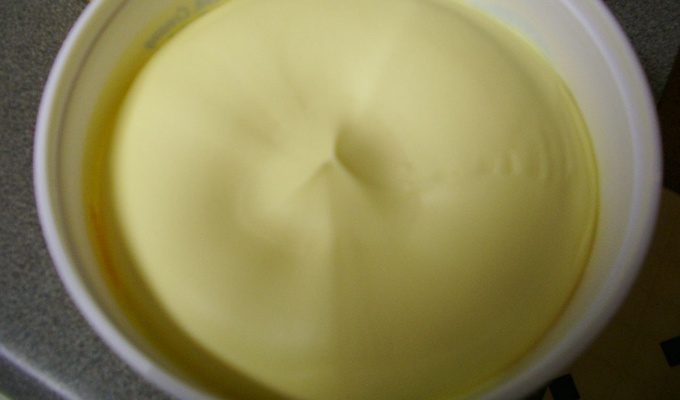Margarine is a spread used for flavoring, baking, and cooking. It is most often used as a substitute for butter. Although originally made from animal fats, most margarine consumed today is made from vegetable oil. The spread was originally named oleomargarine from Latin for oleum and Greek margarite . The name was later shortened to margarine.
Margarine consists of a water-in-fat emulsion, with tiny droplets of water dispersed uniformly throughout a fat phase in a stable solid form. While butter is made by concentrating the butterfat of milk through agitation, modern margarine is made through a more intensive processing of refined vegetable oil and water.
Per federal regulation, margarine must have a minimum fat content of 80 percent (with a maximum of 16% water) to be labeled as such in the United States, although the term is used informally to describe vegetable-oil-based spreads with lower fat content. In Britain, Australia and New Zealand, it can be referred to colloquially as marge.
Margarine can be used as an ingredient in other food products, such as pastries, doughnuts, cakes, and cookies.
